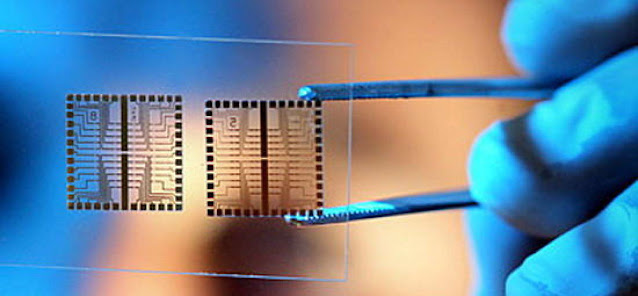Biochips: What Are They For?

Introduction of BioChip
A biochip is a small laboratory that allows for the simultaneous execution of hundreds of biochemical operations. They're made to work in a biological setting, especially inside live organisms. It isn't a piece of electronic equipment. Biochips are made up of millions of biosensors that operate as a microreactor to detect certain analytes such enzymes, proteins, biological molecules, and antibodies.
Biochip development dates back to the early days of sensor technology. Affymetrix, an American business, created the first biochip, called GeneChip, which consists of a number of DNA sensors used to detect abnormalities.
What Is a Biochip and How Does It Work?
Different probes, such as DNA, RNAi, protein fragments, and so on, are represented by a point on the biochip. These probes bind to the targets found in the material under investigation. Hybridization establishes contact between the probes and their intended targets. Target identification and signal quantification are then performed using biochip scanners and microarray image analysis tools. The findings are statistically derived and explained in a biological perspective.
Types include:
Biochips are offered in three different types: –
DNA Microarray - A DNA Microarray is made up of a huge number of small DNA patches that are attached to a sturdy surface. It's used to figure out how many genes have different expression levels. Probes make up each and every DNA mark (the picomoles of a particular gene).
Microfluidic Chip — These chips can be used in place of a biochemical laboratory. They are utilised in a wide range of biological activities, including DNA analysis, molecular biology techniques, and many more. Because they contain hundreds of components, these chips are extremely complicated.
Benefits: Biochips have the following benefits:
- They are little in size yet extremely powerful and quick.
- In a few of seconds, it may carry out thousands of biological responses.
- Biochips can aid in the treatment of a variety of ailments.



Comments
Post a Comment